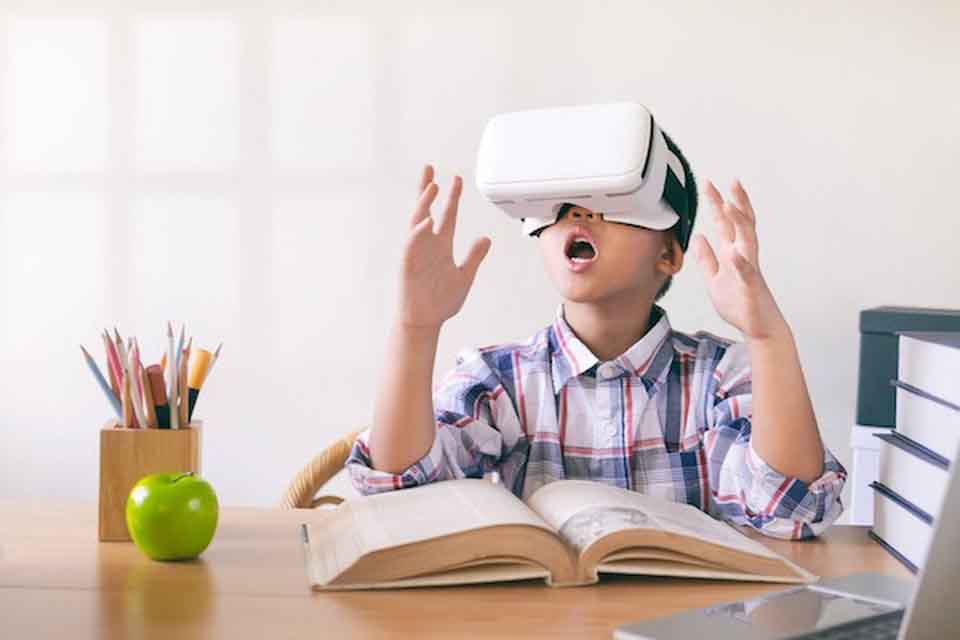My Insight Hub
Your go-to source for daily insights and updates.
Reality Check: Are We Living in a Virtual World?
Is our reality a facade? Dive into the intriguing debate on whether we're living in a virtual world and uncover the truth!
The Illusion of Reality: Exploring Our Digital Existence
In today's fast-paced digital landscape, the lines between reality and virtual existence are increasingly blurred. As we immerse ourselves in the digital realm through social media, virtual reality, and immersive gaming experiences, we must question whether what we perceive as reality is merely an elaborate illusion. Experts suggest that our digital interactions can often distort our perception, leading to a reality built on curated online personas instead of genuine connections.
Moreover, the rise of deepfakes and augmented reality technologies has broadened this illusion, challenging our ability to discern what is real and fabricated. The continuous evolution of these technologies raises critical questions: Are we losing touch with our authentic selves? Are we becoming prisoners of our own digital existence? As we navigate this complex terrain, it’s essential to maintain a critical perspective and embrace self-awareness in our interactions. For further insights into this phenomenon, Scientific American delves deeper into the implications of our digital lives.

Are We in a Simulated Universe? Debunking the Virtual Reality Hypothesis
The concept of simulated universe has gained significant traction in both popular culture and scientific discourse, leading many to ponder whether we are living in a sophisticated virtual reality. Proponents of this hypothesis argue that advances in computer technology and the rise of virtual reality environments make it increasingly plausible that an advanced civilization might create simulations indistinguishable from our perceived reality. However, a critical examination reveals substantial philosophical and technical challenges that question the validity of this theory. For instance, philosopher Nick Bostrom posits that if such simulations were possible, it could lead to a scenario where simulated realities far outnumber actual ones, potentially implying that we are very likely in a simulation. Nonetheless, this argument, while intriguing, lacks empirical evidence and remains largely speculative.
One of the most compelling counterarguments to the virtual reality hypothesis highlights the inherent limitations of computational power. As physicist David Deutsch points out, even the most advanced computers would face insurmountable challenges in simulating entire universes, with all their inherent complexities and nuances. Moreover, the inability to observe any signs of simulated existence strongly suggests that our universe operates under coherent physical laws rather than the erratic rules of a crafted software program. Ultimately, while the idea of a simulated universe may captivate our imagination, the lack of substantive proof coupled with numerous logical contradictions implies that this hypothesis is more of a philosophical curiosity than a credible reality.
Virtual vs. Actual: How to Distinguish Between Real Life and Digital Facades
The distinction between virtual and actual experiences is becoming increasingly blurred in our digital age. While virtual interactions, such as social media and online meetings, offer a sense of connectivity, they often lack the depth and authenticity of real-life encounters. For instance, studies have shown that face-to-face communication contributes significantly to emotional health and relationship building. Understanding this contrast is essential, as an over-reliance on digital facades may lead to feelings of isolation and disconnection. More on the importance of in-person connections can be found here.
To navigate the complexities of virtual versus actual interactions, it's vital to develop a critical lens when engaging with online content. Social media platforms often portray curated versions of reality, where users present idealized representations of their lives. Recognizing the difference between a digital facade and true lived experience requires mindfulness and discernment. Engaging in practices such as digital detoxes or setting boundaries around online presence can help individuals regain a sense of authenticity. For tips on maintaining a healthy relationship with technology, check out this comprehensive guide here.